At Calvin University, we explore things—all things. We don't mind getting our hands dirty as we explore every nook and cranny of the world God has given us.
Our mission
In the biology department at Calvin, we respond to God's call to investigate the diversity, organization, and functioning of the living world and seek to provide a Christian model for its study, care, and keeping. Whether it's in the lab doing cell cultures or in a field planting seeds, we do our work with utmost care, knowing what and whom we are working for.
Our commitments
The biology department at Calvin strives to embody Jesus' command to love our neighbors as oursleves by embodying kindness, love, and hospitality. We endeavor to provide safe spaces for students, staff, and faculty from diverse backgrounds, ethnicities, abilities, interest areas, perspectives, religious traditions, sexual orientations, and gender identities. We work to be a department where all voices, expecially those that historically have been suppressed, can be raised and will be heard. Just as ecological systems, from microbiomes to forests, are healthiest and most resilient when biological diversity is high, we know that our community will be at its best when we reflect the full diversity of God's good creation.
Our programs
The biology department at Calvin offers a BA and BS in biology, a major in biology with a neuroscience concentration, a major in environmental health and conservation, several minors, education programs, and pre-professional programs. Each program integrates academic study with hands-on work in the laboratory or in the field. Opportunities to study biology outside of the classroom are many and include assisting professors with research, doing internships with local companies and organizations, and traveling off campus to study biology in a different context.
Successful students
Students who take part in the biology department's programs have countless opportunities to develop important skills in the classroom, in the laboratory, and in the field.
Students assist professors in their research, make presentations at seminars and conferences, and take part in off-campus internships.
World-class faculty
Our 15 full-time faculty members are dedicated Christians and scholars. We also:
- remain dedicated to relating the Christian faith to the whole learning process.
- make teaching our first priority, an effort consistently recognized for its depth, scope, and innovation.
- maintain leadership roles in professional organizations and participate in diverse areas of research and scholarship through which we mentor our student collaborators.
- are active researchers in our fields, contributing scholarly work to journals and other publications and presenting at professional conferences on a regular basis.
State-of-the-art facilities
Our facilities support investigative, hands-on learning and innovative research with state-of-the-art technology. The facilities include:
- A 55,000-square-foot facility with 10 research labs, 10 teaching labs, a greenhouse, an aquarium, and an insect propagation room.
- A 104-acre preserve of temperate deciduous forest, wetlands, and nature trails.
- State-of-the-art technology for biology research, including a DNA sequencer, a flow cytometer (one of only four in western Michigan), and cell culture facilities.
- The Flat Iron Lake Preserve 25 miles northeast of Grand Rapids.
- Herbarium and museum which houses nearly 8,000 pressed plant specimens, thousands of insects, and hundreds of mammals, birds, and reptiles.
The biology department has 20 labs equipped with typical teaching and research equipment. In addition to this, Calvin's biology department has received funding to purchase advanced and specialized equipment, which at large universities is usually reserved for faculty and graduate students. Here at Calvin, undergraduate students use this technology for research projects and classroom work.
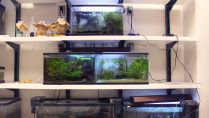
Aquariums
- We keep a variety of tropical fish and amphibians in fresh water aquariums.
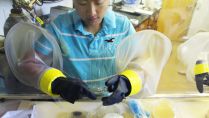
Atmosphere Control Glovebox
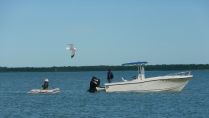
Boat, truck and trailer
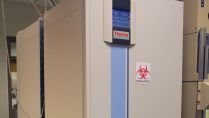
CO2 Incubator
- Allows cells to be grown in culture by emulating a cell’s normal environment in an organism.
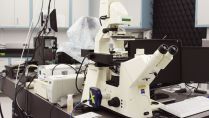
Cell 3D Imaging System (Zeiss Apotome)
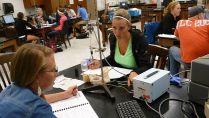
Computerized Physiology Monitoring Equipment
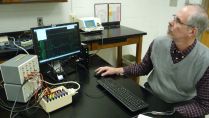
Electrocardiogram (ECG)
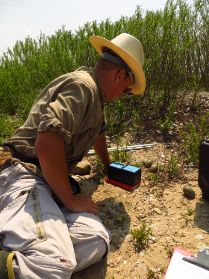
Embryonic Viability Detector
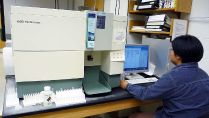
Flow Cytometer
- Measures fluorescently labeled structures in or on cells. Can be applied to identify leukemia cells or the amount of DNA in individual cells.
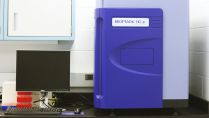
Fluidigm BioMark HD
- Used for high-throughput quantitative PCR and genotyping.
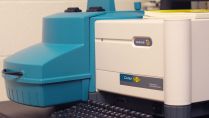
Fluorometer
- Measuring fluorescently tagged structures in cells and tissues
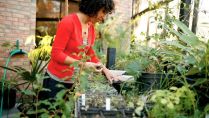
Greenhouses
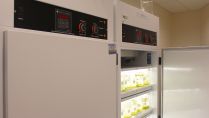
Growth Chambers
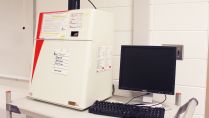
Image Documentation System
- Used for digitizing images for permanently recording laboratory data.
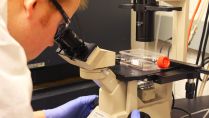
Inverted Microscope
- Used for viewing living cells growing in culture. Can be used for viewing living cells growing in culture and observing cellular responses to infection.
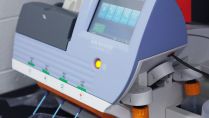
Ion Torrent
- Used for sequencing the genomes of bacteria and bacteriophages (both cultured and uncultured). Sequencing mRNA from a variety of sources.
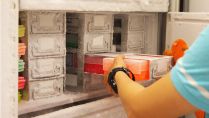
Negative-80 Freezer
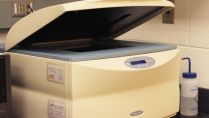
Odyssey Li-Cor Scanner
- Infrared imaging system used to scan gels.
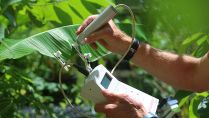
Plant Flourometer
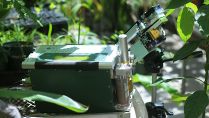
Portable Photosynthesis System
- Used to measure leaf fluorescence and gas exchange rates (CO2 and H2O) between plant leaves or insects and the atmosphere.
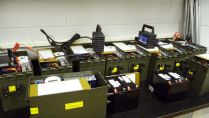
Remote sound production device
- These units are used to playback pre-recorded birds songs and other types of noise in remote forest locations in order to monitor the resulting changes in bird behavior. Designed in house by Chuck Holwerda in the electronics shop and Phil Jasperse in the metal and wood shop.
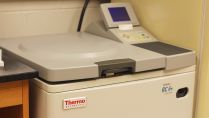
Super Speed Centrifuge and Rotors
- Separates structures by rotation at ultra high speed (80,000 rpm, 605,000 x g), an ultra high-speed refrigerated centrifuge
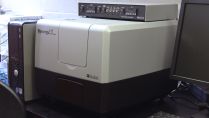
Synergy Microplate Reader
- Used for measuring absorbance, fluorescence of luminescence of indicator compounds in cellular/biochemical reactions.






